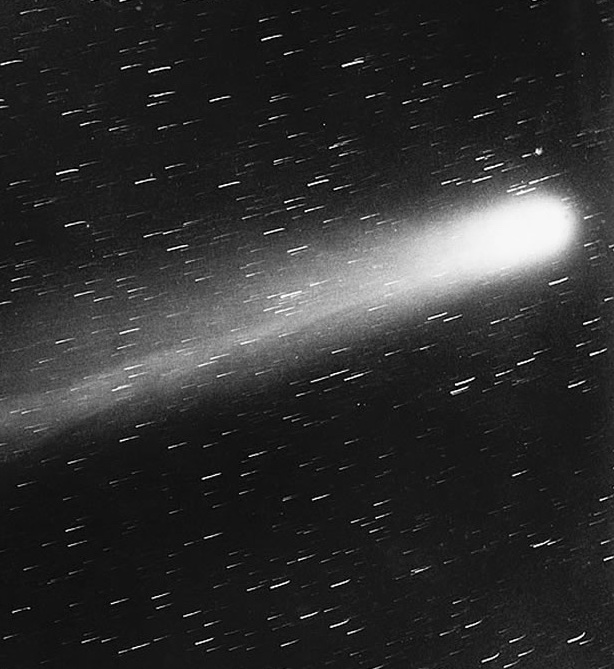Just the Way We Were
Remembering a friend, 30 years later
I maintain a few friendships that began more than two or three decades ago. In most cases, with friends I first met in high school or college or thereabouts, I imagine them as when I last saw them, a few months or a few years ago. I even imagine some as they are today — men with less hair on top and more weight in the middle — based on recent photos they’ve shared on social media.
One of my friends, Dennis Wilkins, looks exactly as he did 30 years ago: skinny, black shaggy hair, beige corduroy pants, untied Hush Puppies, a wrinkled dress shirt, and a loosely knotted knit tie. He is still 19 years old. That is when he died.
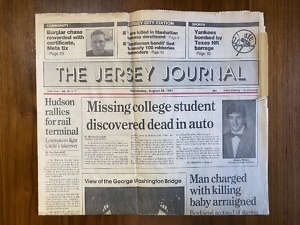
It’s believed he veered off I-84 near Southington, Connecticut, in the early morning of July 29, 1991, crashed into a ravine, and died from head injuries. He was on his way home to New Jersey and his job at General Electric after leaving his girlfriend’s house in Brookline, Massachusetts. They had met at Northeastern University, where they were both students, and continued seeing each other in the summer after his freshman year. It took authorities almost a month to find his car and body in the thick brush off the highway. For those four weeks, he was simply a missing person, and maybe even a runaway, to the authorities. For family and friends who knew and loved him, that was impossible.
Dennis and I were fast friends when we met at Hudson Catholic Boys Regional High School years earlier. We both called the Heights section of Jersey City home. We both loved music, especially the heavy metal of our era, and could talk about and listen to bands like Dokken, Queensryche, King’s X and Metallica for hours. We were metalheads, and were part of a crew of metalheads, drinking beer, raising hell, going to shows and hanging out. We loved classic rock and singer-songwriters too, Queen for me and Billy Joel for him. While I was dabbling in being a musician, Dennis was happy to be a fan. He came from a musical family. His brother, Rich, was one of the finest guitar players I knew. We’d sometimes hang at their house all night, drinking beer and smoking cigarettes, and play stump the guitar player. Rich couldn’t be stumped. Dennis couldn’t be prouder.
When we weren’t being metalheads and music obsessives, we were students, and Dennis was the devilish disheveled genius among us. He was the mind of Matt Damon in Good Will Hunting in the body of poet and memoirist Jim Carroll. As good of a basketball player as the latter, too. He was a math whiz, a natural writer, and a deep thinker with a philosophical bent. He seemed to be casually hip to some view of the world the rest of us hadn’t yet grasped. You went to him for life advice. It was clear he was meant for greater things than the Heights could provide.
In our senior year at Hudson Catholic, we took the train up to Boston together to spend a weekend on Northeastern’s campus. The University had one of the finest journalism schools in the country, and that was my career track. Dennis planned to study finance. We both fell in love with the school and the city, applied, and got in. We were going to Northeastern together.
I was so certain I was going to Northeastern that at our high school senior talent show at the end of the year, where my band Horror Time made its debut, I wore a Northeastern T-shirt and hat. I still have the photographs. We sang some originals I penned the lyrics for, before I joined another band to sing a cover of AC/DC’s “Dirty Deeds Done Dirt Cheap.”
But I didn’t go to Northeastern that following fall. I went to New York University, across the Hudson River in Greenwich Village. My family was in a bitter estate battle with relatives over my grandmother’s house, where we lived. My mother was struggling with undiagnosed mental illness. My father was miserable and violent and deep into a gambling addiction. They fought constantly. It was not an environment conducive to starting a college career, especially as a commuter, but my father convinced me otherwise. Stay home, he told me, and I’ll buy you a car. Things will be better here, too. More peaceful. Less fighting.
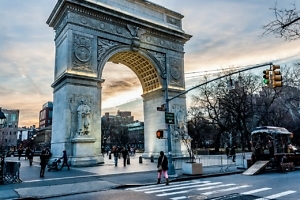
That’s not what happened. While I forged forward at NYU and did my best to thrive in difficult classes on political philosophy and music theory, and got a staff writer gig at NYU’s Washington Square News, things got progressively worse at home over the course of my first and second semesters. I spent more time in Washington Square Park than I did in class, reading books and talking to buskers, mostly because by the time I escaped the chaos in my house and caught the PATH train at Journal Square into Manhattan and NYU, I was late for my classes and embarrassed. And even though I worked multiple jobs — as a journalist at my local paper and weekends at my corner deli — I didn’t seem to have any money.
I’d often leave the house with only enough cash for the train and the hot dog and drink special at the Gray’s Papaya at 6th Avenue and West 8th Street. I was scared to ask my father for two dollars. After having graduated fifth in my high school class, I managed to eke out only a 2.7 GPA at the end of my freshman year. It was clear, too, that even with scholarships, grants and loans, we couldn’t afford NYU. And I couldn’t afford to be indebted to my father anymore. I would soon transfer to Saint Peter’s College, back in Jersey City.
Dennis, some 200 miles away in Boston, thrived in his first year at Northeastern. He made the Dean’s List both semesters. He met a girl there, Sachiko, whom he was driving back up to Boston to see every other week that summer, in a company car General Electric had given him. Sachiko was a native of Japan, and he was helping her learn English. “He was very kind,” she told the Jersey Journal after Dennis’ body was found. “He would have had a very good future.”
I felt guilty about not going to Northeastern with Dennis. My biggest fear then, as it is today, is disappointing someone. I believed then that I let my friend down. It fractured our friendship. We hardly spoke during our freshman year. It tainted other friends’ opinions of me, at least from what I perceived and what others told me.
When Dennis never made it home that July 29, a makeshift search party was assembled to drive up toward Boston and slowly scour the roadside. It included his brothers, friends and a former teacher. I don’t remember why, but I didn’t go with them. The teacher told me later that he couldn’t help thinking, “There goes Joe, not going to Boston again.” I’m older now, and realize that comment says more about the teacher than me, but it stung at the time and stayed with me for years. I wondered whether things would have been different if I’d gone to Northeastern. Maybe I would have been in the car with him that night, driving while he slept.

It was hard to explain to Dennis, or to anyone, how difficult the situation had become for me at home, and why I made the decisions I did. Violence, addiction, my mother’s mental illness — these were not things we talked about. It’s strange to write that now, because in addition to interviewing Sachiko and family members after Dennis’ death, the Jersey Journal also interviewed me. “He was a great person to talk to,” I told the paper. “If you had a problem in your life, he was able to make you stop and think about it and sort it out.”
With age comes loss. We move out of houses, have falling outs with friends, leave jobs, go through divorces, euthanize pets, bury parents and loved ones. All of it comes with some level of lament. We realize eventually in the grieving process that what we feel is not about what we did or didn’t do, it’s about what we won’t ever get to do again. And that, ultimately, is life. For children and teenagers, with a limited past and an inconceivable future, these events are not part of life. They are everything. On the night before my grandfather died, when I was 8 years old and my sister was 11, she had an argument with him while putting up the Christmas tree. She was still irritated in the morning and left for school without saying goodbye to him. He had a heart attack later that morning. For years she thought she was somewhat responsible for his death. Somewhere deep inside, she may still.
The summer of Dennis’ death, my parents got divorced, the house I grew up in was sold and I buried one of my best friends. His memorial service took place on the same morning the moving truck came.
* * *
Memory is a kind
of accomplishment
a sort of renewal
~William Carlos Williams
When Dennis was still a missing person, his brother Rich’s band Krysis, my band, and other friends planned a benefit show at Escapades, our home rock club on the west side of Jersey City, to raise money for an investigation. His body was discovered a week before the show, and we instead used it to memorialize him and raise money for burial costs. Horror Time played, and then I sang an a cappella version of Billy Joel’s “Just the Way You Are.” I’m a capable but not particularly great singer, and I’m not sure why I decided to do that, or why I chose that song, other than that Dennis liked Billy Joel. I certainly wasn’t going to sing “Only the Good Die Young.”
While it at first appears to be a song about romantic love, a deeper listen reveals more. I see now that I used it as a plea for forgiveness. There are lines about affirming feelings that have regrettably not been shared, and devotion not fully realized. And perhaps the most important couplet: “What will it take till you believe in me / The way that I believe in you?”
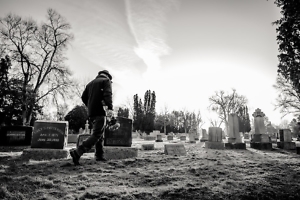
I loved Dennis exactly as he was, and while it makes no sense in a fair world that he is frozen forever for me at 19 years old, I’m consoled in knowing that who he was, deep down, would not have changed. I have no doubt that he loved me, too, the way I was, and would think the guilt I’ve felt all these years, equally frozen in time, is misplaced. It’s time, perhaps, that we both thawed out.
Dennis is buried at Holy Cross Cemetery in North Arlington, New Jersey. I’ve been to his gravesite a number of times over the years. In June of 1998, I was invited to a wedding in Western Massachusetts that would require my driving the same road he was on when he died, for the first time since his death. I went to Holy Cross to talk with him and get his blessing and forgiveness before making the trip.
I was back in New Jersey last year for the funeral of my father-in-law. He, too, was buried in Holy Cross, so I took the opportunity to visit Dennis’ grave again. I was sad but heartened in a way to discover that his mother, Jane, had passed away in 2019 and was now buried in the same plot as her son. I can’t imagine her pain all these years, but I was glad they could be back together. I sat a while and told Dennis about my wife and two daughters, and my life and work in Nashville. Thirty years later, he’s still a great person to talk to. Especially about all the things I never said.
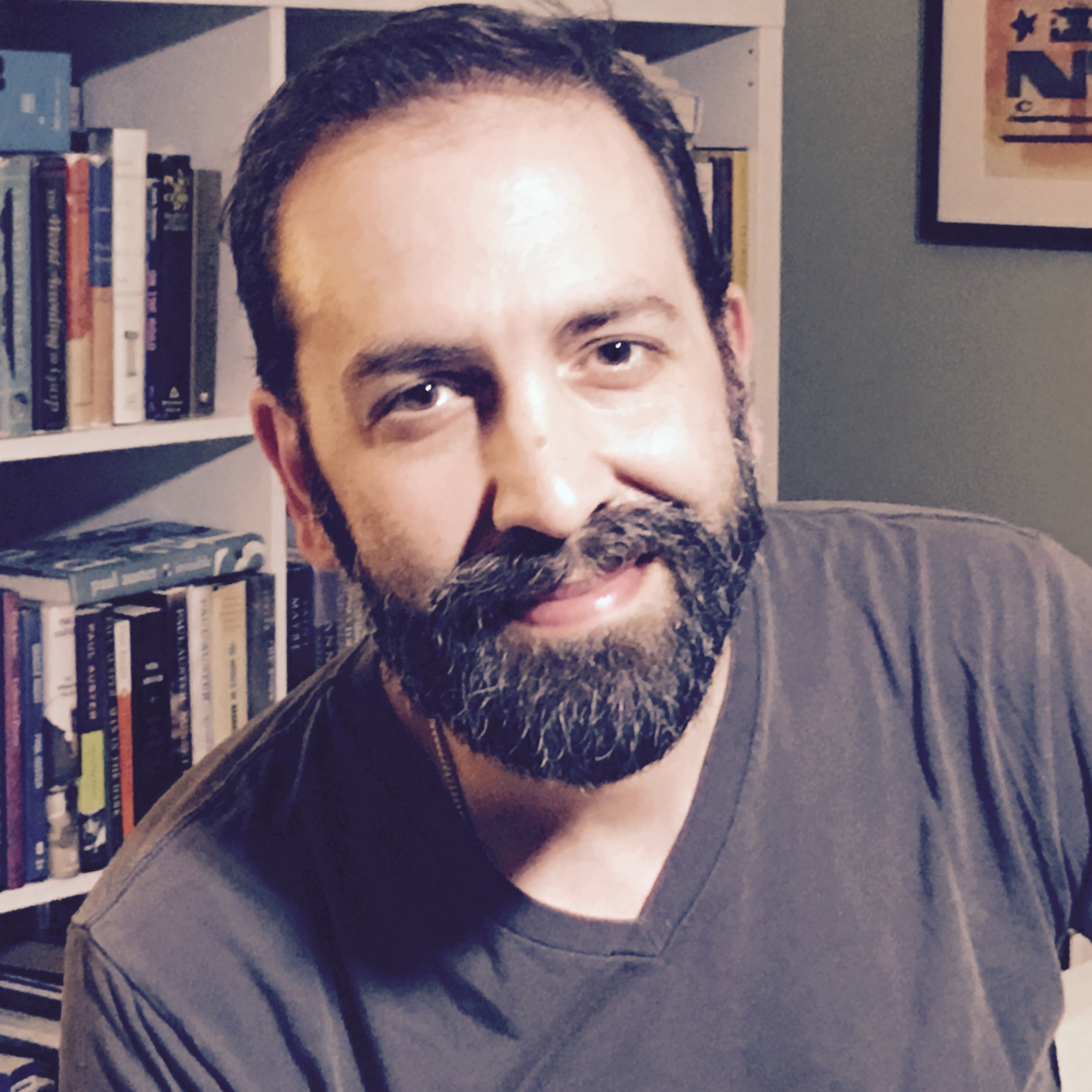
Copyright © 2021 by Joe Pagetta. All rights reserved. Joe Pagetta is a museum communications professional, personal essayist, and arts writer whose writing has appeared in Ambassador (National Italian American Foundation), America: The Jesuit Review, Today’s American Catholic, Wordpeace, Ovunque Siamo, Nashville Scene and PBS.org. Guinea Bastard, a collection of his personal essays, was published in 2018. Originally from Jersey City, New Jersey, he holds a B.A. in English from Saint Peter’s College (now University) and currently serves as the director of communication at the Tennessee State Museum. He lives in Nashville with his wife and children. More at JoePagetta.com.
